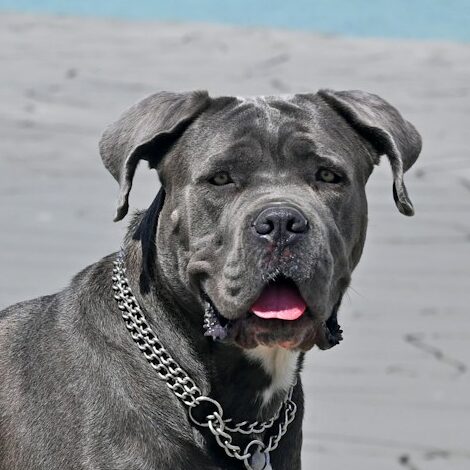


Cane Corso training should start as early as 8 weeks old. Early training is essential because Corsos grow rapidly, and an untrained 50kg+ adult dog can be difficult to manage. Puppies should start with basic obedience, impulse control, and socialisation right away. By 16 weeks, they should already be familiar with lead walking, recall, and house rules. Waiting too long to train a Cane Corso can lead to ingrained stubborn behaviours and resistance to guidance. Even though adult Cane Corsos can still be trained, early intervention makes the process smoother.
Yes, but off-leash training for a Cane Corso requires significant groundwork. Their protective instincts and prey drive can make them difficult to recall in high-distraction environments. The process should begin with:
Some Corsos may never be fully reliable off-lead in unsecured areas, especially if their guarding instincts are triggered. Owners should assess their individual dog’s responsiveness and temperament before attempting full off-leash freedom.
While a Cane Corso’s natural guarding instincts make them excellent protectors, they must be taught when not to react.
Overprotectiveness often develops when:
Balanced Cane Corso training focuses on teaching controlled protection, not uncontrolled suspicion.
Yes, but proper introductions and boundaries are crucial. Cane Corsos have a dominant nature, which can lead to tension if not managed correctly. To train them to live peacefully with other dogs:
A balanced diet is crucial for a Cane Corso’s overall health, muscle development, and energy levels. As a large, active breed, they require high-quality protein sources (like chicken, beef, or fish) to support their muscle mass, along with healthy fats for coat and joint health. A grain-free or raw diet may suit some dogs, but others thrive on high-quality kibble formulated for large breeds. Cane Corsos are also prone to bloat (gastric torsion), so feeding smaller, frequent meals and avoiding vigorous exercise right after eating can help prevent this condition. Always consult a vet to tailor their diet based on age, weight, and activity level.
Due to their size, intelligence, and guarding instincts, Cane Corsos benefit significantly from professional guidance. A professional can help:
© 2026 Next Level Dog Training. All rights reserved.